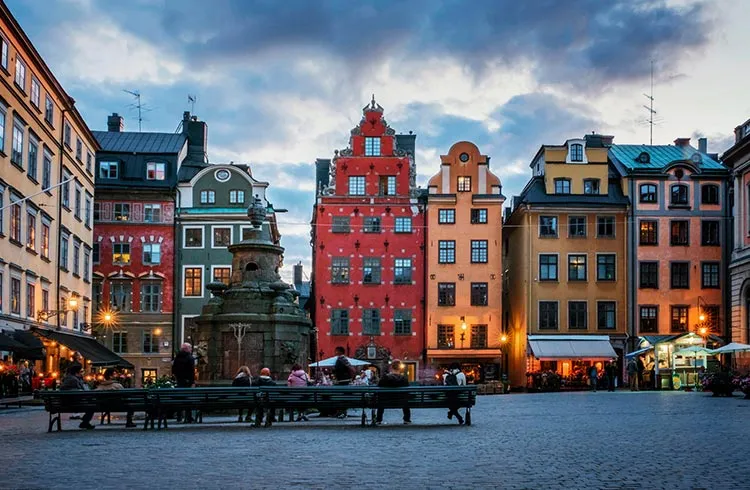

Study in Netherlands Consultants
The Netherlands is gaining popularity among Indian and other international students as one of the best places for higher education in Europe. With some of the best universities in the world and a majority of the people can speak English throughout the country, the Netherlands (also known as Holland) is a great choice for studying abroad.
This guide from AOEC India Study in Netherlands Consultants covers everything from costs to visas and post-graduation options.
Quick Facts for International Students
Universities: 14 research universities and over 40 universities of applied sciences with different specialties.
Budget: It typically costs around €800–1,100 per month (accommodation and meals, travel, etc.). The standard of living is comparable to other Western European countries.
Read MoreLess
Tuition Fees (EU): Dutch higher education institutions €2,000–4,000 per degree, International Institute for Higher Education €6,000–15,000 per degree, and Tuition fees for professional degrees like MBA or Medicine may be higher.
Post-Study Work Permit: There is a 12-month orientation year visa which permits students to stay in the Netherlands and work without restriction for a year after completing their degree.
Language: Officially Dutch, with around 95% of people speaking English.
Take first step towards your Study Abroad Journey
Why Study in the Netherlands
World-Class Education: Dutch higher education institutions have an excellent reputation for the high quality of their education and research. This attracts students from all over the world, resulting in an international classroom and high-ranking universities. The two traditional universities, the University of Amsterdam and Delft University of Technology, are funded as public universities.
Read MoreLess
English-Taught Programs: Hundreds of degree programs at bachelor’s and master’s levels are available in English, so you don’t have to study Dutch to get your degree.
Reasonable Tuition Fee: When it comes to tuition fees, it’s way more affordable in the Netherlands compared to USA and some other study abroad countries.
Culturally Diverse & Inclusive Environment: The Netherlands is recognized for its multiculturalism, attracting students from across the globe.
Good Location in Europe: Other European cities like Paris, London or Berlin are just a few hours away by train or plane, making weekend or holiday trips a breeze.
Good Career Prospects: There are a lot of multinational startups that are based in the Netherlands; Amsterdam (finance and tech), Eindhoven (tech and engineering), Rotterdam (logistics), and Wageningen (agri-food research) are some example cities. These hubs feature numerous internships and job opportunities.
Dutch Higher Education System
The Dutch system is transparent and in line with the Bologna process in Europe.
Higher education institution types include Research Universities (Wetenschappelijk Onderwijs, WO) which focus on theoretical learning, and Universities of Applied Sciences (HBO) which include applied, vocational and professional higher education and offer professional bachelor’s degrees and master’s degrees.
Read MoreLess
Academic Year: Bachelor’s degrees take 3 years (180 ECTS credits) at research universities and 4 years (240 ECTS credits including internship) in applied sciences university. Master level studies are 1–2 years (60–120 ECTS credits) and are offered in broad fields.
School Year & Classroom: Schooling is in the form of semesters or trimesters, like other schools in the United States. The teaching method is interactive, team-based and provides a platform for critical thinking, project-based and case-based learning. Dutch students are expected to speak their minds and disagree with instructors.
Applications: The easiest way to apply is by going through the Studielink system, an online enrolment procedure that allows you to apply for any course at a Dutch university with just one click. Certain programs are competitive and have limited seats with early deadlines (typically 15 January). Be sure to look through the university websites or ask an education consultant for specific needs.
Cost of Study in Netherlands
Tuition Fees: Non-EU international students should expect to pay between €6,000 to €15,000 per year for a bachelor’s degree and between €9,000 to €20,000 per year for a master’s degree. Professional courses, such as those for MBA or Medicine, may be more expensive.
Read MoreLess
Medical Insurance: Students are required to be adequately insured for medical treatment during their stay in the Netherlands. Private student insurance runs between €40 and €100 a month for those younger than 30 and not employed. Part-time employees will be moved to Dutch public health insurance.
Visa Financial Guarantee: You must show proof of at least one year of tuition and living expenses (roughly ~€11,000–€12,000) while you apply for visa in the form of bank statements, scholarships.
Currency: The currency is Euro (€). Having a local Dutch bank account can also help avoid foreign transaction fees. Some students mitigate costs using discounts and part-time work.
Cost of Living in the Netherlands
Monthly expenditures differ according to lifestyle and city.
Accommodation: €400–800 for a room in shared housing or student dormitories. Housing tends to be more expensive and competitive in bigger cities.
Food: €150-€250 if you can cook for yourself. There are also supermarkets such as Albert Heijn, Jumbo and Lidl. It’s affordable to eat out frequently (for example, campus cafeteria meals are ~€10).
Read MoreLess
Transportation: €50–100. Bike is the cheapest & most used means of transport. Monthly student public transport passes are ~€40–70.
Other: €100-150 on books, mobile, leisure. Many museums have student discounts.
Part-Time Labor: Maximum of 16 hours weekly, at roughly €8–12 per hour, often in restaurants and retail or with university jobs. Students from outside the EU require employees to obtain work permits.
A monthly budget of €800–€1,100 typically covers most expenses.
Admission Requirements & Eligibility
Specific admission depends on the program and the institution to which one is applying, but generally consists of:
Academic: The equivalent of Dutch VWO (pre-university secondary education) is required for the bachelor’s program. Indian students normally need to pass Class 12, in some cases with a particular percentage.
Read MoreLess
For master’s Programs:
Applicants must hold a relevant undergraduate degree from an accredited institution. Some universities specifically require a four-year bachelor’s degree, while those with a three-year degree might need to complete a pre-master’s or bridging program to qualify.
English Score: Most courses demand an IELTS 6.0 for bachelor’s and 6.5 for master’s, with a minimum band score. TOEFL iBT equivalent scores are considered. Other programs ask for higher scores (e.g. IELTS 7.0). IELTS waivers might be considered if you have studied in English or under international boards, but this will be case to case and these conditions don’t apply to all students.
How to Apply for Studying in the Netherlands
Standardized Tests:
- Some programs accept lower GRE scores, but requirements vary.
- Certain competitive programs (economics, engineering, and so on) may require or recommend GRE scores. As always, be sure to check program requirements.
Read MoreLess
Documents Needed:
- Transcripts/mark sheets of all previous education.
- Explanation Statement of Purpose (SoP) or motivation letter on why you are interested.
- Employer Recommendation Letters.
- CV/Resume is often requested.
- A portfolio might be required for creative fields.
- Copy of passport and set of passport size photos.
Application Process:
Most applications open at Studielink and proceed by way of the university portal or email when it comes to submitting documents.
Deadlines matter: Admissions for the September intake typically close around May 1 for international students; some schools with early-deadline programs close as early as Jan 15. A few even offer a February start date.
Admission consultants assist those who have trouble keeping track of deadlines and documents.
Preferred Courses by Indian Students in the Netherlands
Engineering & Technology: Mechanical, Civil, Electrical engineering, etc.
Upcoming fields: AI, Data Science, Renewable Energy Engineering.
Business & Management: Finance, Supply Chain, International Business, Marketing and Entrepreneurship – MBA.
The industrial and multicultural areas of Amsterdam and Rotterdam provide cities with excellent internship possibilities.
Read MoreLess
Health & Life Sciences: Research Biochemistry, Medicine Drug Discovery Development, Biomedicine Public Health, Pharmaceutics, Biotechnology, Food Science.
Knowledge of Dutch may be necessary for clinical placements, but research programs are generally conducted in English
AHSS – The Arts, Humanities, and the Social Sciences: media, psychology, architecture, Urban Planning, International Law and Relations.
Famous courses at Leiden University (International Law) and Utrecht University (Humanities).
Environmental And Sustainability Studies: Environmental Science, Sustainable Energy, Water and Land Management, Agricultural Science.
Water and sustainability: The Netherlands is known worldwide for its investments in water and for innovative ways to live sustainably.
Tip: Tailor your course to industry hubs, such as tech in Delft/Eindhoven, finance in Amsterdam.
Top-Ranked Universities in the Netherlands (QS World University Rankings 2025)
Delft University of Technology (TU Delft) – Ranked 49th globally, known for its strong focus on engineering and innovation.
Utrecht University – Placed at #105, it is one of the oldest and most respected institutions in the country.
Read MoreLess
Eindhoven University of Technology (TU/e) – Ranked 136th, recognized for its emphasis on technology and industry collaboration.
Leiden University – At #141, it is the oldest university in the Netherlands with a reputation for research excellence.
Erasmus University Rotterdam (EUR) – Holding the 158th spot, EUR was established in 1913 and is well-regarded for programs in business, economics, and social sciences.
Vrije Universiteit Amsterdam (VU) – ~#221 The Vrije Universiteit Amsterdam (VU) was founded in 1880, and is a highly-ranked university in global tables — particularly for arts and humanities, social sciences, and global studies.
Note: Program fit and strength can matter more than overall rankings.
Study in the Netherlands Scholarships
Holland Scholarship (NL Scholarship): €5,000 for one academic year for students from outside the EEA who have already studied for one year. Deadline: On or about Feb 1 or May 1.
Founder of the Orange Tulip Scholarship (OTS): Partial and Full Scholarships available for some countries including India, etc. Deadlines around April 1.
Read MoreLess
Erasmus Mundus Joint Masters Grants: Scholarships for Erasmus Mundus courses of tuition, salary and travel costs.
College-Specific Scholarships:
- University of Twente Scholarships (€3,000–€22,000)
- Amsterdam Merit Scholarship (25,000 euros)
- TU Delft Excellence Scholarship (tuition fee and allowance)
- Holland Scholarship at Erasmus University
Leiden University Excellence Scholarship 2025/2026 (Fully Funded) for Master’s Studies in the Netherlands
The Leiden University Excellence Scholarship (LExS) supports high-achieving students from non-EU/EEA nations who are seeking admission to a master’s degree program at Leiden University.
It is also open to exceptional students of any nationality applying for the Advanced master’s in law or the MSc in International Relations and Diplomacy.
Orange Knowledge Program (OKP) / MENA Scholarship Program (MSP):
For professionals from certain countries for short courses and master’s programs.
Note: Most scholarships require a provisional admission letter. Research advisers can help you determine if you fit the criteria and apply.
MVV in Combination with your Residence Permit (Dutch Student Visa)
Residence Permit (VVR)
Enables studying while being a resident in the Netherlands. Typically, good for at least the entire program duration, and perhaps even longer.
Necessary documents: valid passport, evidence of financial means (~€11,000/year), and perhaps tuberculosis test, visa fee.
Read MoreLess
Visa & residence permit fee: approximately €311 in 2025 (slightly lower).
The visa and residence permits are granted and issued by the Immigration and Naturalization Service (IND).
In the Netherlands you pick up the residence permit card at an IND desk or at your university.
Visa consultants can assist in getting paperwork right and in hassle-free processing.
Study in Netherlands Consultants Assistance
- Profile Evaluation: Find the best universities & application details that will suit your profile and help you get to the top universities and specialization?
- Application Support: SOPs, recommendations, deadlines, and form-filling assistance.
- Admission Updates: Get notified about test waivers, alternate paths, and changes in eligibility.
- Scholarship Help: Guidance on applications and essay editing.
- Visa & Documentation: End-to-end visa and financial proof assistance.
- Pre-Departure Help: Accommodation, insurance, arrival checklists, and airport pickup.
- Career Advice: Support in finding internships or jobs post-study.
